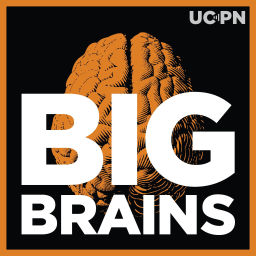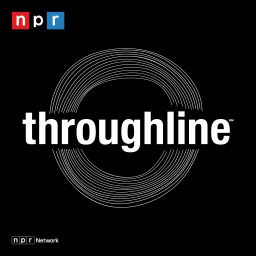
by University of Chicago Podcast Network
Big Brains explores the groundbreaking research and discoveries that are changing our world. In each episode, we talk to leading experts and unpack their work in straightforward terms. Interesting conversations that cover a gamut of topics from how music affects our brains to what happens after we die.
Language
🇺🇲
Publishing Since
4/5/2018
Email Addresses
1 available
Phone Numbers
0 available

April 17, 2025
What if a single number, derived from your DNA, could predict your income, education level or even who you're likely to marry? In his new book “The Social Genome,” Princeton University sociologist Dalton Conley explores the science behind how our genes are shaping our society in ways that are both profound and unsettling. Conley explains how our genes, and the genes of those around us, are influencing our lives in ways we barely understand—from fertility clinics selecting embryos based on genetic traits to the rise of “genetic sorting” in everything from dating to zip codes. He also debunks the idea of nature versus nurture, revealing how deeply intertwined they truly are. Are we heading toward a future of genetically coded inequality? And what policies and conversations are urgently needed to ensure we don’t cross the line from science into dystopia?

April 3, 2025
When we lose someone, we love, we often say we have a broken heart—but what if that’s not just a metaphor? In her new book “The Grieving Body: How The Stress of Loss Can Be An Opportunity For Healing” University of Arizona Professor of Psychology Mary Frances O’Connor shares groundbreaking insights into the biological and physiological impacts grief has on our bodies. O’Connor reveals how profound loss can lead to serious medical conditions, from heart attacks to immune system breakdowns, and explains why grieving can make us more vulnerable to diseases like cancer, pneumonia, and even autoimmune disorders. Drawing on her personal experiences and extensive research, O’Connor outlines why our medical system—and society at large—needs to rethink how we support grieving individuals. She makes a powerful case for viewing grief not only as an emotional experience but as a medical event deserving careful monitoring and intervention, similar to pregnancy or chronic illness.

March 20, 2025
New federal data paints a stark picture: American children are falling behind in reading and test scores, with the gap between advantaged and disadvantaged kids growing wider. But is this really just a problem of money? University of Chicago Developmental psychologist Ariel Kalil has spent her career studying how parents influence childhood development—not just through resources, but through daily habits and interactions. On this episode, we explore the surprising science behind parental engagement, the behavioral biases that shape parenting decisions, and why simple interventions—like 15 minutes of reading a day—can have an outsized impact. Plus, we discuss how AI and behavioral economics might provide new solutions for supporting parents in an era of rising inequality.

University of Chicago Podcast Network

Freakonomics Radio + Stitcher

Freakonomics Radio + Stitcher

Hidden Brain, Shankar Vedantam

NPR

Freakonomics Network & Zachary Crockett

Freakonomics Radio + Stitcher

Unknown author

Marketplace

WNYC Studios

NPR

Freakonomics Radio + Stitcher

NPR

NPR

The Atlantic
Pod Engine is not affiliated with, endorsed by, or officially connected with any of the podcasts displayed on this platform. We operate independently as a podcast discovery and analytics service.
All podcast artwork, thumbnails, and content displayed on this page are the property of their respective owners and are protected by applicable copyright laws. This includes, but is not limited to, podcast cover art, episode artwork, show descriptions, episode titles, transcripts, audio snippets, and any other content originating from the podcast creators or their licensors.
We display this content under fair use principles and/or implied license for the purpose of podcast discovery, information, and commentary. We make no claim of ownership over any podcast content, artwork, or related materials shown on this platform. All trademarks, service marks, and trade names are the property of their respective owners.
While we strive to ensure all content usage is properly authorized, if you are a rights holder and believe your content is being used inappropriately or without proper authorization, please contact us immediately at [email protected] for prompt review and appropriate action, which may include content removal or proper attribution.
By accessing and using this platform, you acknowledge and agree to respect all applicable copyright laws and intellectual property rights of content owners. Any unauthorized reproduction, distribution, or commercial use of the content displayed on this platform is strictly prohibited.